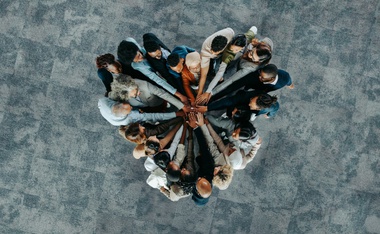In the pursuit of a more harmonious world, it is essential to recognize the extraordinary potential nested within each of us. The Baha’i teachings elucidate a profound understanding of our unique capacities to effect change. This perspective posits that every individual holds an intrinsic ability to contribute meaningfully to the tapestry of society. By embracing this concept, we unlock the door to a transformative mindset—one that invites introspection and action. This article aims to explore the implications of recognizing our unique capacities, delineate the principles underlying this recognition, and inspire a palpable shift in perspective.
The Innate Potential of the Individual
At the heart of Baha’i principles lies the notion that all individuals possess inherent dignity and potential. Each person, regardless of background, is endowed with unique talents and attributes that can serve the collective good. Understanding this fundamental tenet requires an acknowledgment of the divine essence that pervades all humanity. The reciprocal relationship between self-discovery and community service emerges: as individuals come to recognize their capacities, they are inspired to serve more effectively. This relationship not only bolsters personal growth but also enhances communal harmony.
Fostering a Mindset of Empowerment
To catalyze change, one must first cultivate a mindset of empowerment. Recognizing oneself as an agent of change becomes paramount. This perspective incites curiosity and prompts inquiry into what one can contribute. It is vital to understand that making a difference need not always manifest in grand gestures. Sometimes, the simplest actions can reverberate through communities, creating a ripple effect. Embracing a mindset of empowerment entails taking initiative, pursuing knowledge, and aligning one’s actions with the principles that resonate on a deeper level.
The Role of Education in Recognizing Capacities
Education serves as a conduit through which individuals can uncover and develop their capacities. The Baha’i teachings emphasize that education is not merely the acquisition of knowledge but a comprehensive process fostering moral virtues and spiritual awareness. This holistic approach encourages individuals to explore their interests and talents while instilling a sense of responsibility toward the world around them. Lifelong learning cultivates a richness of experience that fortifies one’s capacity to contribute, thus facilitating a continuous cycle of growth and development.
Faith and Action: Bridging the Gap
The coexistence of faith and action forms a cornerstone of the Baha’i framework. Faith, in this context, transcends mere belief; it embodies a dynamic force that propels individuals toward purposeful action. Understanding one’s unique capacities is intertwined with the application of these abilities in real-world scenarios. Consequently, individuals are encouraged to forge a connection between personal beliefs and their actions within the community. This synthesis not only fosters personal fulfillment but also amplifies the collective impact of individuals working in concert for the betterment of society.
Building Resilience Through Community
In recognizing our unique capacities, it becomes increasingly apparent that community plays an integral role in nurturing individual potential. A supportive network fosters resilience, enabling individuals to pursue their unique paths without fear of failure. Such an environment cultivates collaboration, where diverse perspectives are valued and collective efforts yield profound results. The synergy within a community reinforces the idea that each member is vital to the shared mission of uplifting society, further encouraging individuals to contribute their distinct talents.
Embracing Diversity as a Strength
One of the most compelling aspects of recognizing our unique capacities is the embrace of diversity. The Baha’i teachings underscore that diversity should be celebrated, as it enriches the fabric of society. By acknowledging and valuing different experiences, backgrounds, and viewpoints, a community fosters an environment wherein innovative solutions can emerge. The collision of ideas often leads to groundbreaking progress. Understanding that each person’s unique contributions stem from their individual narrative encourages open-mindedness and fosters inclusivity—cornerstones for effective collaboration.
The Power of Service as a Transformative Force
Service to humanity remains an enduring theme within the Baha’i teachings, reinforcing the philosophy that recognizing one’s capacities culminates in a commitment to serve others. When individuals harness their unique talents to serve their communities, they not only enhance their own growth but also uplift others. Service engenders a sense of purpose and connection, reinforcing the collective strength of humanity. Engaging in acts of service creates opportunities for individuals to realize their potential while nurturing solidarity and compassion—a vital antidote to the isolation often found in contemporary society.
Charting the Path Forward
The journey of recognizing our unique capacities is an ongoing process, a continuum of self-discovery and engagement with the world around us. It beckons individuals to reflect on their strengths and the myriad ways they can contribute to society. As one begins to embrace this paradigm, it becomes increasingly evident that the power to make a difference resides within each of us. The awakening of this consciousness does not merely promise personal fulfillment; it heralds the potential for wider societal transformation.
Conclusion: A Call to Action
In conclusion, recognizing our unique capacities, as illuminated by Baha’i teachings, is not merely an introspective endeavor but a clarion call to action. It invites individuals to cultivate their attributes, engage in community, and commit to service. The promise of this recognition is the inception of a broader movement toward compassionate and collaborative societal structures. By nurturing our unique capacities and encouraging others to do the same, we embrace the transformative power that resides within us all—a power that, when unleashed, can illuminate the path toward a more unified and harmonious world.
